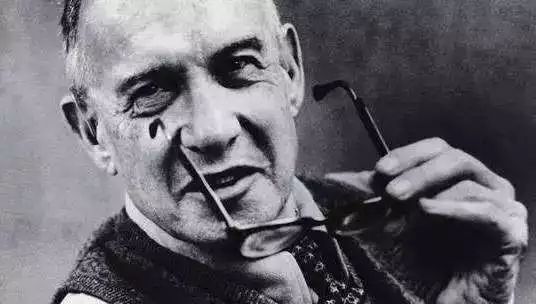He persisted in the cognitive theories and learning methods that he felt for life, and we have seen the practice of “integration of knowledge and action” in life.
Editor’s note: This article is from WeChat public account “Bofanstime” (ID: bofanstime) , author Bo Fan time, reproduced with permission.
Peter Drucker is known as the father of modern management, and his management thought has deeply influenced many contemporary entrepreneurs. He published the autobiographical novel “The Spectator” based on his own growth experience in the rare years. At the age of 86, he reviewed his life again and showed us the seven experiences that affect his life. Understand the source of thought of this management master, and read profound value cognition and methodology from each of his experiences.
1, 18-year-old apprentice-Set a lifetime goal and vision in Verdi’s music.
In 1927, under the age of 18, Drucker worked as an apprentice at an export company in Hamburg, Germany. At that time, he often went to the Opera House to see performances. One night, while admiring Verdi’s opera “Falstaff”, he was completely conquered by this timeless work full of joy, passion for life and infinite vitality.
Drucker later consulted the relevant information and found that Verdi was 80 years old when he composed the opera. Why did he spare the pain to write another difficult opera at this age? Verdi explained: “As a musician, I have been pursuing perfection throughout my life, but perfection always avoids me. I feel that it is absolutely necessary for me to try again!”

Pursue perfection, try again!
This sentence shocked the young Drucker and became a beacon guiding his life. He was determined at the time that no matter what life he was engaged in, he would never give up in pursuit of perfection-even perfection always avoided himself.
Drucker used his good musical literacy and keen perception to set the coordinates of life in Verdi’s musical works, establish “cathedral thinking”, and pursue perfection in his lifetime.
2. At the same time as apprentices-attach importance to invisible things in Phidias’s teachings.
Drucker was impressed by Verdi’s experience shortly after he saw the story of the ancient Greek sculptor Phidias: In 440 BC, Phidias was commissioned to create a huge statue on the roof of the Parthenon in Athens. When all the classic works passed down from the century were completed, the treasurer of the city of Athens refused to pay the bill because the sculpture stood on the roof of the temple and the temple was on the highest mountain in Athens, so everyone can only see the front of the statue Cofidias charges for the entire sculpture.
“You are wrong,” Phidias refuted, “the gods can see!”
The gods can see!
Apprentice Drucker is shocked again! This sentence has since become his life-long motto. He began to understand that when he was really engaged in a valuable job, half of his efforts were hidden from view, but he couldn’t insist on it. What is invisible is more important than what is visible! Dare to bear the hidden costs not in the terms of the transaction, you can get unexpected benefits-this is the responsibility and pattern of a person. The mode of thinking that values internality and the thinking of the cathedral complement each other, and become a pillar of Drucker’s outlook on life during his youth and run through his life.
3, 20-year-old financial journalist-Spiral-like progress in lifelong learning and “slight derailment”
On Drucker’s 20th birthday, he was hired as a financial and diplomatic journalist by Frankfurt’s largest newspaper. In order to become a qualified journalist, Drucker develops the habit of continuous learning and chooses a new field every three or four years. From statistics, medieval history to Japanese art, economics, etc., although the study lasting three years in each field cannot be mastered in this field, it can be thoroughly understood. This habit has been maintained for more than 60 years, allowing Drucker to break the rigidity and path dependence of his thinking, expand his ideas in continuous learning and “micro-derailment”, and make his management thought continue to iterate.

4, 22-year-old assistant editor-in-chief life is not worth living
Drucker soon became an assistant editor. He regularly reviewed and reviewed his work under the guidance of an experienced editor. He is often asked the following questions: What things have not been done yet? What must go all out? What should be improved? What needs to be learned? …… This is not only a way of auditing the value of the work, but also an effective method of working. Later, this method became an important part of Drucker’s life. He took about 2 weeks every year to review the work of the previous year. Perhaps, as Socrates said, an unexamined life is not worth living. During repeated audits, Drucker continued toApproaching the ultimate goal of “perfection”, at the same time, his value consciousness is slowly forming.
5 and 25-year-old executive secretary-the meaning of the post and the value of the job
In 1933, Drucker moved from Frankfurt to London, England, first working as a securities analyst at a large insurance company; a year later, he went to a private bank as the executive secretary of a senior partner.
As Drucker’s work began to flow, the bank’s founder poured him a cold water. He believes that although Drucker is good at securities analysis, he is still doing securities analysis at the position of executive secretary. He has not switched roles at all, and has not contributed value to new positions.
These words completely shattered the value of Drucker’s work, but also awakened him. He had a correct understanding of the value of work, and he completely changed the previous work content and behavior. Since then, every time he changes a new post, he thinks about the meaning of the post and the value of the job, so that the content of the job matches the requirements of the post. This also became an important dimension for observing the organizational structure and personnel arrangements when he later conducted business consulting, so that everyone in the enterprise could truly be qualified for his post, effectively avoiding “waste of talent”-this is in line with our Eastern wisdom. The concept of “in power” in the Book of Changes has the same meaning.
Achievements of religion research at 6 and 36 years of age—the driving force for continuous correction
Around 1945, Drucker chose modern European history as his field of study for the last three years. He found in his research that both the priest and the Calvinist pastor recorded their expected results before making some major decisions, and then compared them with the actual results after 9 months, so that they could quickly find themselves What do you do well and what are your strengths? What must you learn and what habits must you change? What you don’t have talent for, so you can’t do it well; Can clearly understand the advantages and disadvantages of decision-making Make mistakes to better identify yourself. Drucker believes that a growing person will insist on evaluating his own performance. Therefore, he persisted in this practice for 50 years and became his driving force for correction and progress.
7 and 40-year-old perception of value——contribute to changing human life
In 1950, Drucker began teaching management courses at New York University. He followed his father to visit the famous Harvard economist Joseph Schumpeter. In the conversation, Schumpeter said, “If a person cannot change people’s lives, he will not change anything.” Only 5 days after this conversation, Mr. Schumpeter gave up, but what he said was deeply imprinted in Drucker’s mind, which made Drucker’s understanding of the value of life and business theory again Take a new height.

The seven things Drucker experienced have become the backbone of his life and the cornerstone of his business proposition. From apprentices in trading companies to employees of brokerage companies, from financial journalists to assistant editors, from securities analysts to executive secretaries, from business consultants to university professors, from music appreciation to religious studies, Drucker frequently “Boundary” and the study of lifelong learning continue to upgrade cognition from different perspectives, just to get closer to the perfect goal; he persists in the cognitive theory and learning methods he has perceived for life, letting us see the life of “integration of knowledge and action” practice.